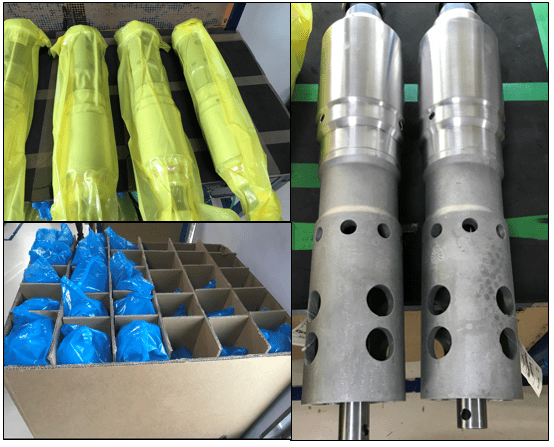
BioPad is a “green” technology flexible corrosion inhibiting device constructed from biobased non-woven material, providing a sustainable packaging option for corrosion inhibition. Its high VpCI concentration, combined with a thin design, results in material reduction by up to 94% compared to similar polyurethane foam emitting devices. This USDA Certified Biobased Product claims to offer up to two times as much corrosion inhibiting action as its conventional VCI counterpart.
BioPad is cost-effective, adaptable, and easily applied. Simply placing it into your package will allow metal items to be protected while leaving them ready for use. BioPad is said to be good for the protection of ferrous and non-ferrous metals and various alloys — galvanized and carbon steels, copper, brass, aluminum, and zinc. It is free of nitrites and chromates.

Headquartered in St Paul, Minnesota, Cortec Corporation offers innovative, environmentally responsible VpCI and MCI corrosion control technologies for packaging, metalworking, construction, electronics, water treatment, oil & gas, and other industries.
Protecting ship engines in outdoor storage

For years, a major marine engine manufacturer has used Cortec VpCI to protect the externals of massive ship engines and motor shafts being stored outdoors near the sea for 12 months, awaiting shipment. They conducted a test to see if they could use BioPad to protect the engines’ internals from corrosion. They hung one BioPad inside each of three different engine voids for six months of outdoor testing. The test was successful as there were no corrosion traces, and the manufacturer decided to use BioPad. Other advantages of using BioPad were that it contained renewable materials derived from corn-processing byproducts. It had a lighter smell and protected more than twice as much space per square meter (1.2 yd2) than the competitor’s product, making it a far more cost-effective option. The engine manufacturer ended up ordering 7,000 sheets of BioPad to protect 150 engines a year.
Preservation of high voltage interrupters
A global engineering services company had been using locally made VCI foam inside vacuum-packed 6-mil (150 µ) competitor VCI bags (yellow film) for export of high voltage interrupters to India, China, the USA, and Europe (as well as domestic shipment inside India). They were facing rust on parts, along with the consequent rejections, reworked this required, and wanted a complete dry packaging solution with zero rust. Cortec Corrosion Solutions India recommended using 6-mil (150 µ) VpCI-126 Bags and BioPad inserts without vacuum packing. The customer began a careful evaluation process, performing their modified versions of VIA and Razor Blade Testing on VpCI-126 Film in their lab and finding it to be successful. They undertook three field trials that involved export to China with good results. This was followed by their trial order of BioPad pads and custom-size rolls of Cortec’s VpCI-126 Blue corrosion protection film. The customer was satisfied and has not only implemented this Cortec dry packing solution for regular production and export of high voltage interrupters to all countries but has also extended the same packaging solutions to their vendors.
BioPad conforms to NACE Standards TM0208-2008 and RP0487-2000, as well as MIL-I-22110C. A certified laboratory has tested it following ASTM D-1748 (Humidity Test) and ASTM D 1735 with excellent results. On March 6th, 2020, BioPad became a USDA Certified Biobased Product and is now able to display a unique USDA label that highlights its percentage of biobased content. With BioPad’s new biobased certification, it is an excellent opportunity for federal agencies and their contractors to take advantage of an effective and efficient corrosion inhibitor solution that falls within the minimum biobased requirements for the mandatory federal purchasing initiative of the USDA BioPreferred Program.










